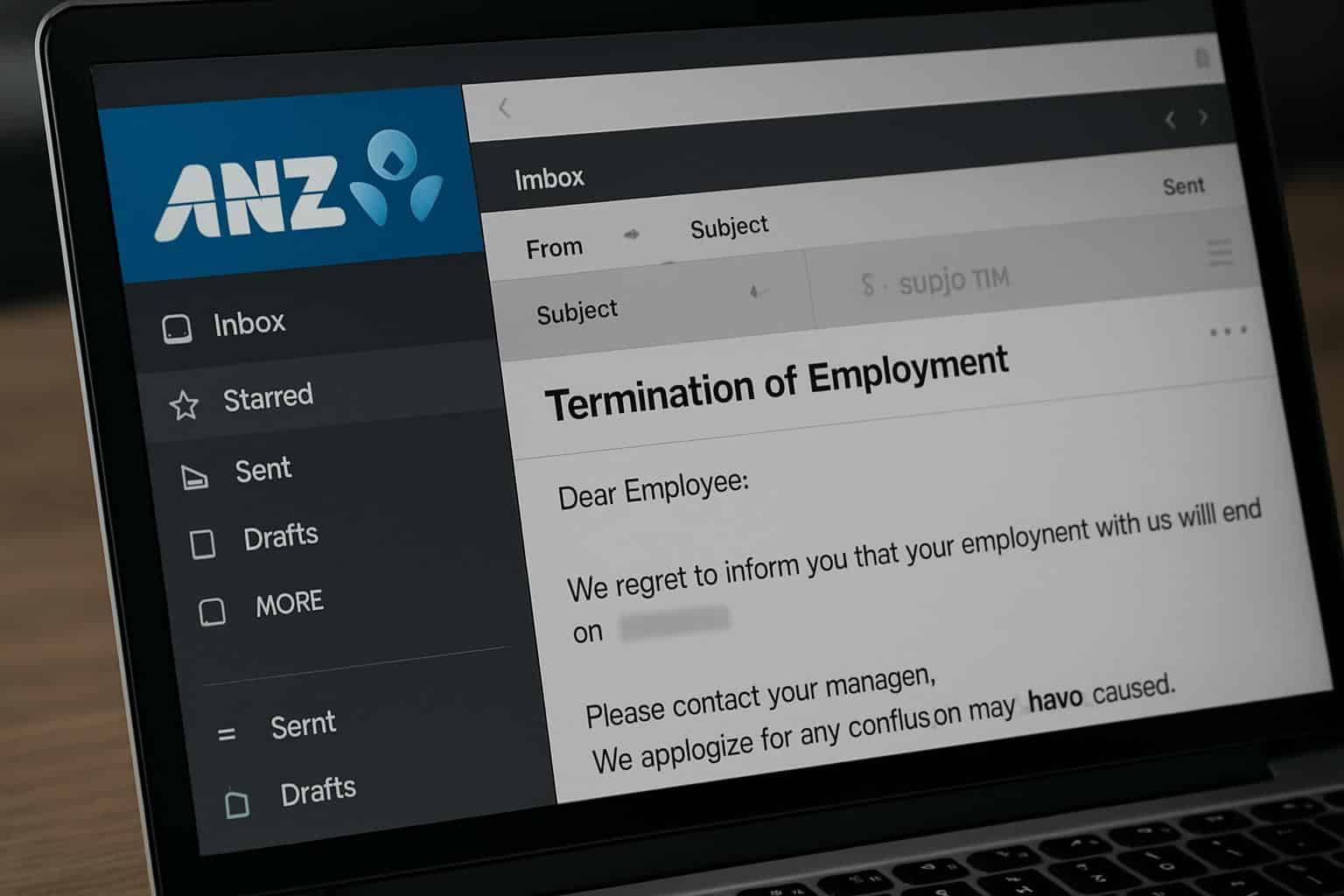ANZ has apologised after automated emails informing staff members that they are leaving the company were mistakenly sent out to some retail banking staff before managers had a chance to tell them in person, causing confusion and distress throughout the ranks.
How the email mistake played out
The bank maintains the messages were released early as part of a restructure in its retail banking division that outlined possible exit dates for impacted employees before formal discussions had been held.

ANZ, after discovering the error, stopped further mailings, contacted employees who were affected, and conducted a virtual meeting to take questions. Senior retail bank executive Bruce Rush sent an internal apology, admitting that the early communications had done damage.
Union response and staff impact
The Financial Sector Union condemned the episode as causing “panic and distress”, and suggested the event was indicative of a lack of control of change inside the bank. FSU president Wendy Streets said workers had not been adequately consulted, and called on ANZ to adopt a better approach to managing changes to staffing levels.
It said: “Speed and cutting costs should not be at the expense of dignity for workers, and there should be better engagement processes when jobs are being reviewed or removed.”
Leadership response and investigation
During media briefings, chief executive Nuno Matos called the incident indefensible and deeply disappointing and the bank launched an internal investigation into how the premature emails were issued in order to prevent it happening again.
ANZ said it had brought forward formal one-on-one discussions with those affected and still had a commitment to treat staff with respect as changes were implemented.

Challenges and reputation of communication break down
The incident underscores the risk to reputation for large organisations when automated systems and change programs are not well wedded to human-centered communication practices, particularly in customer-facing business units like retail banking in Australia and New Zealand.
Workplace experts say large companies need to safeguard that technology, which is designed to expedite processes, does not strip away vital personal contact from delicate conversations about jobs and lives.
Corporate examples and public scrutiny
The episode recalls previous high-profile episodes of mass dismissals handled badly and criticized widely, among them a widely publicized 2021 episode in the United States, when about 1,000 mortgage firm employees were told in a single video call that they were being let go.
These sorts of precedents have kept regulators, unions and the public more attuned to how organizations handle the process of shrinking their workforce, and to the optical side of things.
What’s next for ANZ and for staff
ANZ has promised to finalise its internal investigation and set better standards in terms of staff consultation, while union officials are still calling for better assurances around respectful treatment and better engagement on restructures.
On the employee level, the most pressing priorities are hearing directly from managers and figuring out any support available as the bank undertakes an organizational overhaul.

